
Of Mice and Men is a 1939 American drama film based on the 1937 play of the same name, which itself was based on the novella of the same name by author John Steinbeck. The film stars Burgess Meredith, Betty Field, and Lon Chaney Jr., and features Charles Bickford, Roman Bohnen, Bob Steele, and Noah Beery Jr. The film tells the story of two men, George and his intellectually disabled partner Lennie, trying to survive during the dustbowl of the 1930s and pursuing a dream of owning their own ranch instead of always working for others. Starring in the lead roles were relative Hollywood newcomer Burgess Meredith as George and veteran actor Lon Chaney Jr. as Lennie. Chaney had appeared in more than 50 films by that point in his career, but Of Mice and Men was his first major role. Betty Field's role as Mae was her breakthrough role in film.
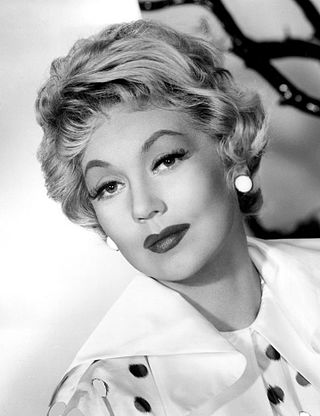
Ann Sothern was an American actress who worked on stage, radio, film, and television, in a career that spanned nearly six decades. Sothern began her career in the late 1920s in bit parts in films. In 1930, she made her Broadway stage debut and soon worked her way up to starring roles. In 1939, MGM cast her as Maisie Ravier, a brash yet lovable Brooklyn showgirl. The character proved to be popular and spawned a successful film series and a network radio series.
Nell Columbia Boyer Martin (1890–1961), usually known as Nell Martin and also published under the name Columbia Boyer, was an American author from Illinois specializing in light-hearted mysteries and short stories.
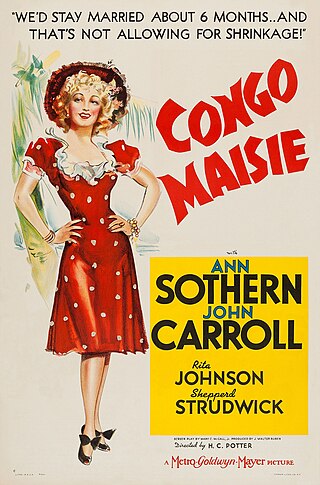
Maisie Ravier is a fictional character, best known as the leading character of ten American films (1939–1947), the Maisie films, and the radio show The Adventures of Maisie. In these, she was played by actress Ann Sothern.

The Ann Sothern Show is an American sitcom starring Ann Sothern that aired on CBS for three seasons from October 6, 1958, to March 30, 1961. Created by Bob Schiller and Bob Weiskopf, the series was the second starring vehicle for Sothern, who had previously starred in Private Secretary, which also aired on CBS from 1953 to 1957.
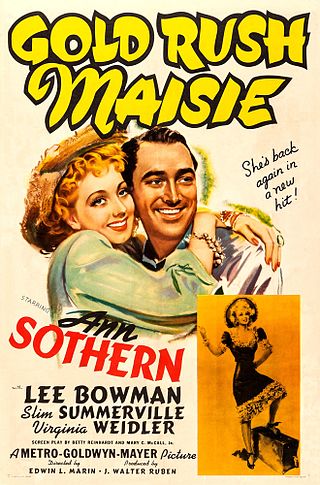
Gold Rush Maisie is a 1940 drama film, the third of ten films starring Ann Sothern as Maisie Ravier, a showgirl with a heart of gold. In this entry in the series, she joins a gold rush to a ghost town. The film was directed by Edwin L. Marin.

Congo Maisie is a 1940 comedy-drama film directed by H. C. Potter and starring Ann Sothern for the second time in the ten film Maisie series as showgirl Maisie Ravier.
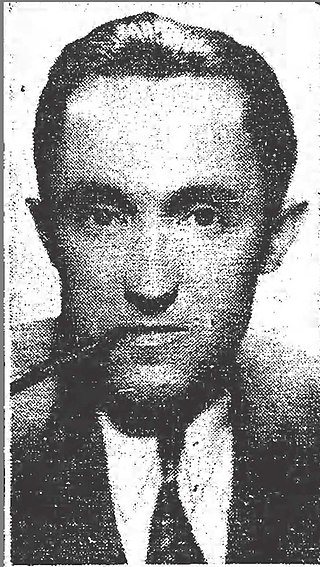
Wilson Collison was a writer and playwright.

Maisie Was a Lady is a 1941 American comedy drama film directed by Edwin L. Marin and starring Ann Sothern, Lew Ayres and Maureen O'Sullivan. Produced and distributed by Metro-Goldwyn-Mayer, it is the fourth in a series of ten films starring Sothern as good-hearted showgirl Maisie Ravier.

Maisie Gets Her Man is a 1942 American romance film directed by Roy Del Ruth and starring Ann Sothern and Red Skelton. It is the sixth of the ten-film Maisie series.
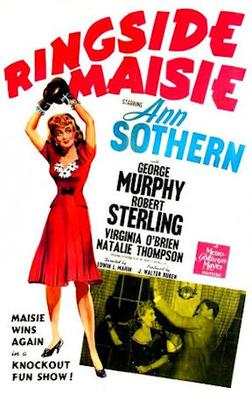
Ringside Maisie is a 1941 American sports comedy film directed by Edwin L. Marin and starring Ann Sothern, Robert Sterling and George Murphy. It is the fifth of ten pictures in the Maisie series. This was Sothern and future husband Sterling's only film together.
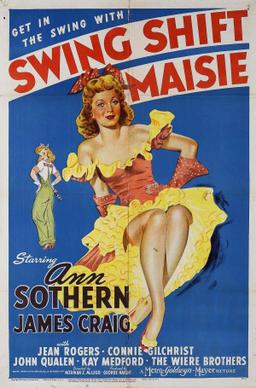
Swing Shift Maisie is a 1943 romantic comedy film directed by Norman Z. McLeod. It is the seventh in a series of 10 films starring Ann Sothern as Maisie, preceded by Maisie Gets Her Man (1942) and followed by Maisie Goes to Reno (1944). Her co-stars are James Craig and Jean Rogers.

Melody Trail is a 1935 American Western film directed by Joseph Kane and starring Gene Autry, Ann Rutherford, and Smiley Burnette. Written by Sherman L. Lowe and Betty Burbridge, the film is about a singing cowboy who goes after the men who kidnapped the baby he should have been babysitting. The film features the songs "On the Melody Trail", "A Lone Cowboy on the Lone Prairie", and "Western Lullaby".
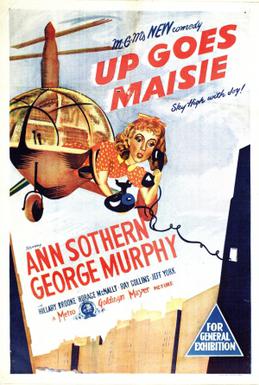
Up Goes Maisie is a 1946 American comedy film directed by Harry Beaumont. Produced by Metro-Goldwyn-Mayer, it is the ninth of 10 films starring Ann Sothern as ex-showgirl Maisie Ravier, characterized as "that double trouble doll with the sassy chassis." At nearly 40 years old, it was clear that both Sothern and the series was "winding down". In this series entry, Maisie, "the peppery lady with a golden heart" goes to work for an inventor and helicopter operator played by George Murphy.

Maisie Goes to Reno is a 1944 American comedy film directed by Harry Beaumont. It is the eighth film starring Ann Sothern as Maisie Ravier, preceded by Swing Shift Maisie and followed by Up Goes Maisie. John Hodiak plays her love interest in this 1944 romantic comedy.

Undercover Maisie is a 1947 American comedy film directed by Harry Beaumont and starring Ann Sothern, Barry Nelson, and Mark Daniels. It was produced by Metro-Goldwyn-Mayer, the final film of the ten film Maisie series starring Ann Sothern as ex-showgirl Maisie Ravier. In this series entry, Maisie Ravier decides to join the Los Angeles police force. The previous film was Up Goes Maisie.

The Light That Failed is a 1939 drama film based on Rudyard Kipling's 1891 novel of the same name. It stars Ronald Colman as an artist who is going blind.
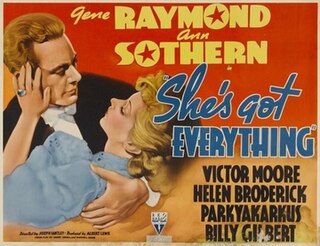
She's Got Everything is a 1937 American romantic comedy film directed by Joseph Santley from a screenplay by Harry Segall and Maxwell Shane, based on a story by Shane and Joseph Hoffman. The film stars Gene Raymond and Ann Sothern, with supporting performances by Victor Moore, Helen Broderick, Parkyakarkus, and Billy Gilbert. RKO Radio Pictures produced and distributed the picture, which was released on the final day of 1937.

Grand Exit is a 1935 American detective mystery film with comedy elements, directed for Columbia Pictures by Erle C. Kenton, with screenplay by Bruce Manning and Lionel Houser, based on a story by Gene Towne and Graham Baker. The leads, in their second film together, are Edmund Lowe and Ann Sothern, with supporting players Onslow Stevens, Robert Middlemass and Wyrley Birch.

Warren Reynolds "Ray" Walker was an American actor, born in Newark, New Jersey, who starred in Baby Take a Bow (1934), Hideaway Girl (1936), The Dark Hour (1936), The Unknown Guest (1943) and It's A Wonderful Life (1946).




















